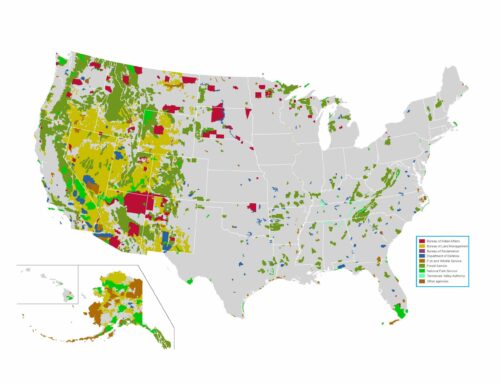by Greg Walcher, E&E Legal Senior Policy Fellow
As appearing in the Daily Sentinel
Several years ago in a speech to a Republican Party gathering, I was mentioning the GOP’s history in founding the original conservation movement in America. I pointed to the first preservation of public lands by Abraham Lincoln (Yosemite), the first National Park created by Ulysses Grant (Yellowstone), and several achievements of Theodore Roosevelt and his close friends — and fellow Republicans — forester Gifford Pinchot, geologist John Wesley Powell and naturalist John Muir. Afterward, I was cornered by a furious Sierra Club member, livid that I had dared call the club’s founder and patron saint John Muir a Republican.
I meant no disrespect, but history is history. During the Civil War and reconstruction period of Muir’s youth in Wisconsin, being a Democrat would have been unthinkable. I cited his life-long friendship with Republican Congressman Merrill Moores, who helped create the Forest Service, and a couple other relevant facts. But this enthusiast would have none of it. It was “deeply offensive,” he said, “to equate the great John Muir with the Party of James Watt!” I said I was actually talking about the Party of Teddy Roosevelt, but he retorted, “You can’t prove Muir ever voted for a Republican, and I demand that you stop saying that!”
Last week I mentioned that Sierra Club President Ramon Cruz is trying to erase John Muir from the group’s history, to “cancel” him, as is the current fashion. I suggested that if the Sierra Club no longer wants its main hero, I would take him. Muir wasn’t perfect, of course. Neither is Cruz. Nor any other human being. It no longer matters what party Muir belonged to. He left a legacy worth remembering. Cruz probably won’t.
Yosemite National Park was Muir’s life’s work, to preserve not only the Yosemite Valley (which had been given to the state as a park by Lincoln), but also the surrounding giant sequoias, mountain peaks, and miles of majestic scenery. No block of land that large had ever been set aside for permanent protection — at the height of the homestead era — but in 1890 Muir finally convinced Congress.






